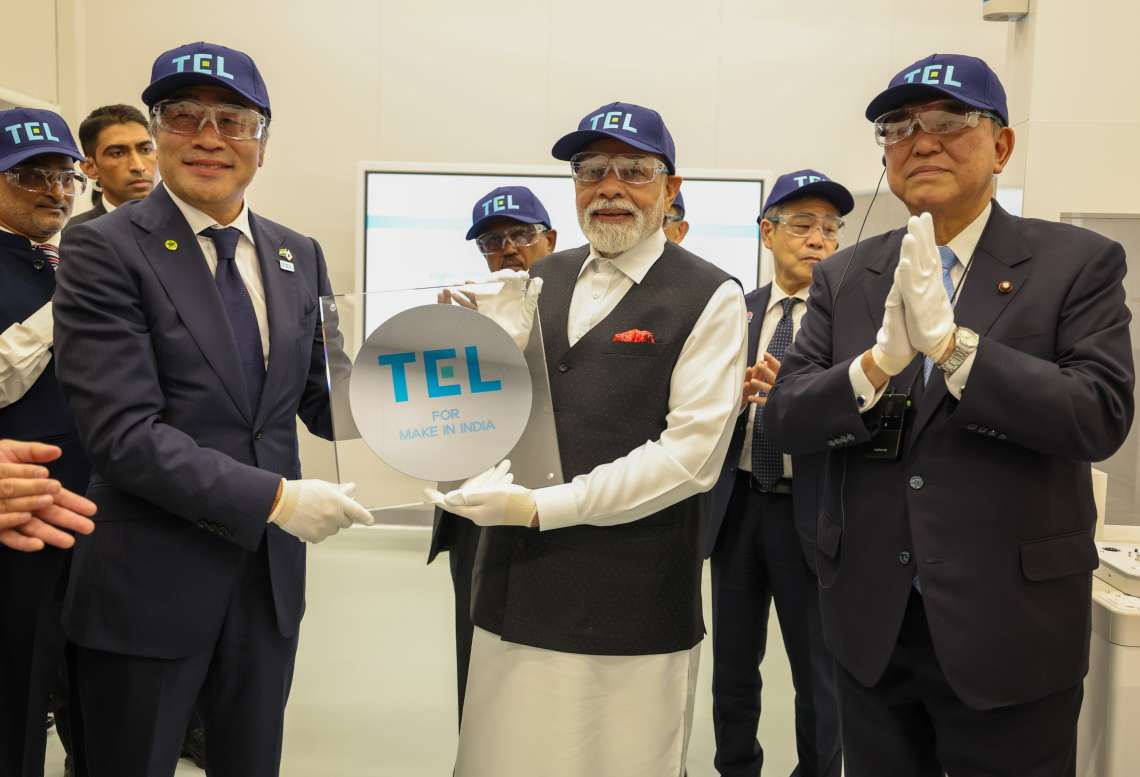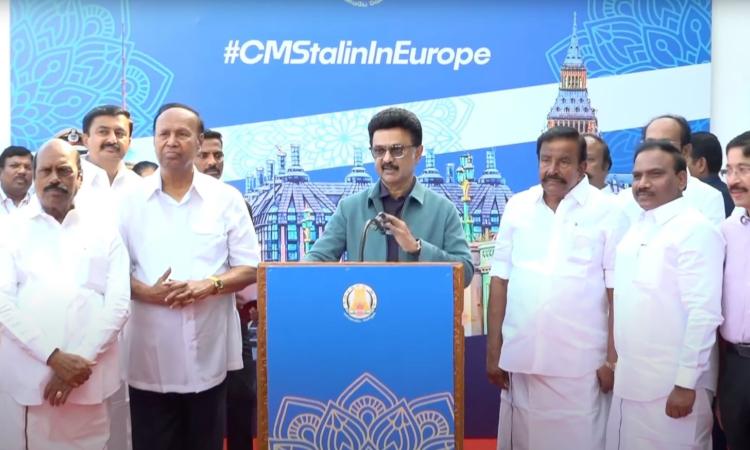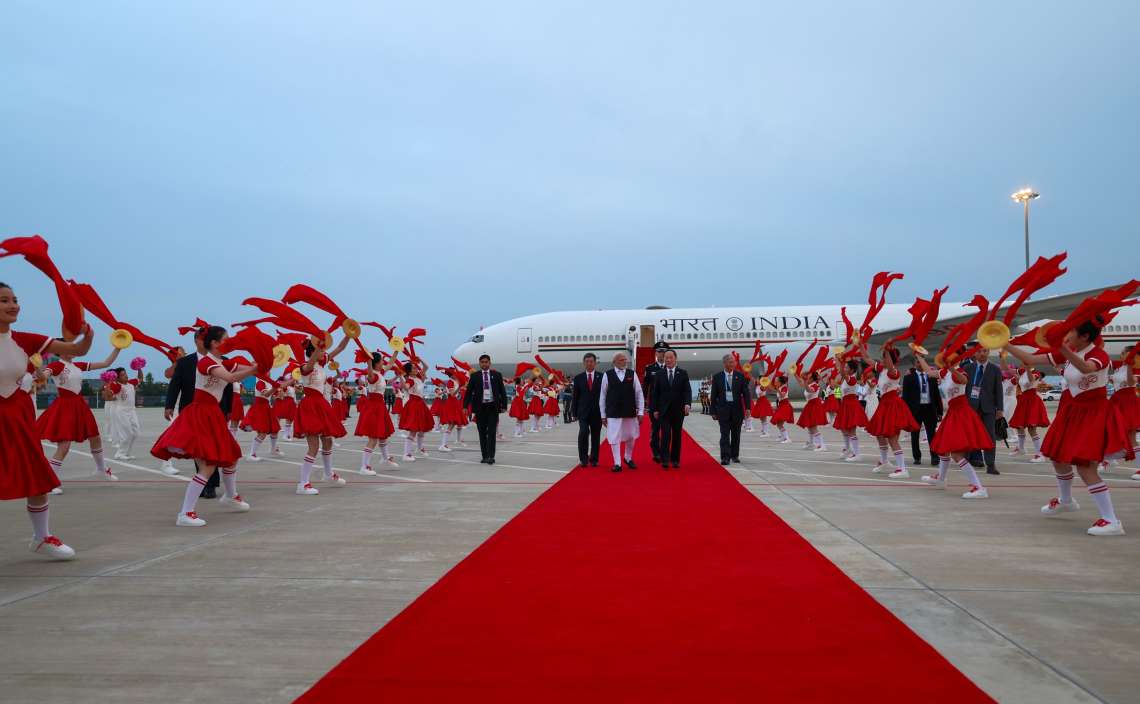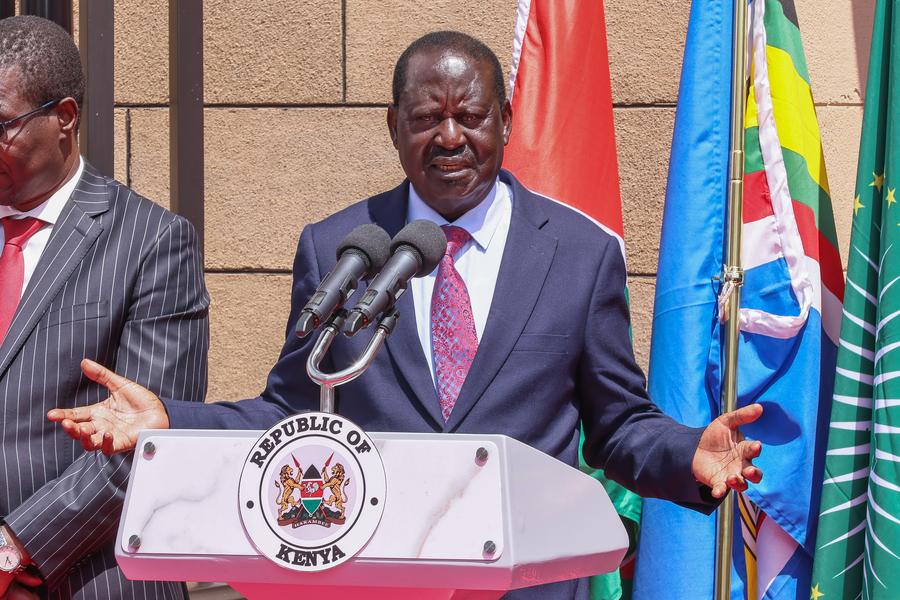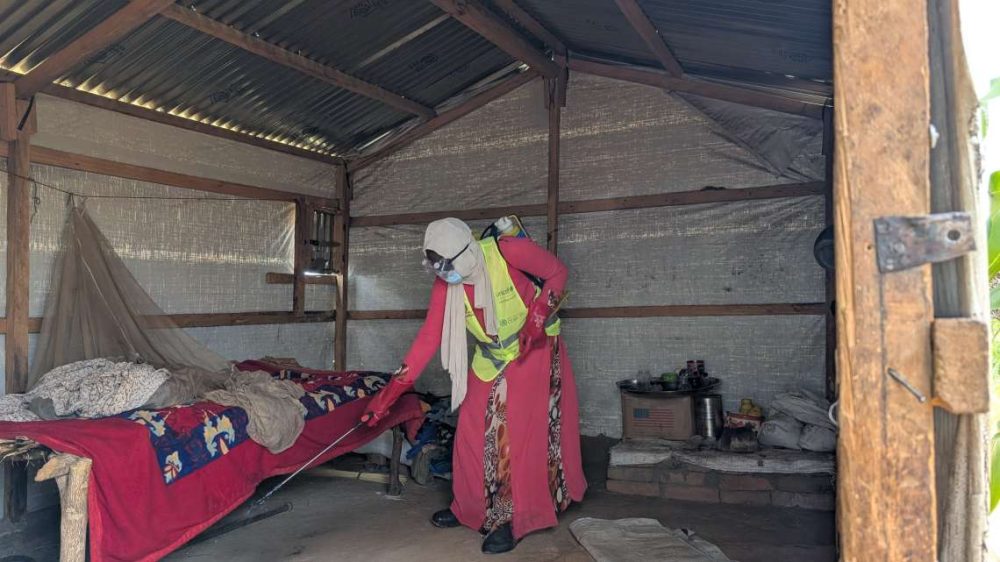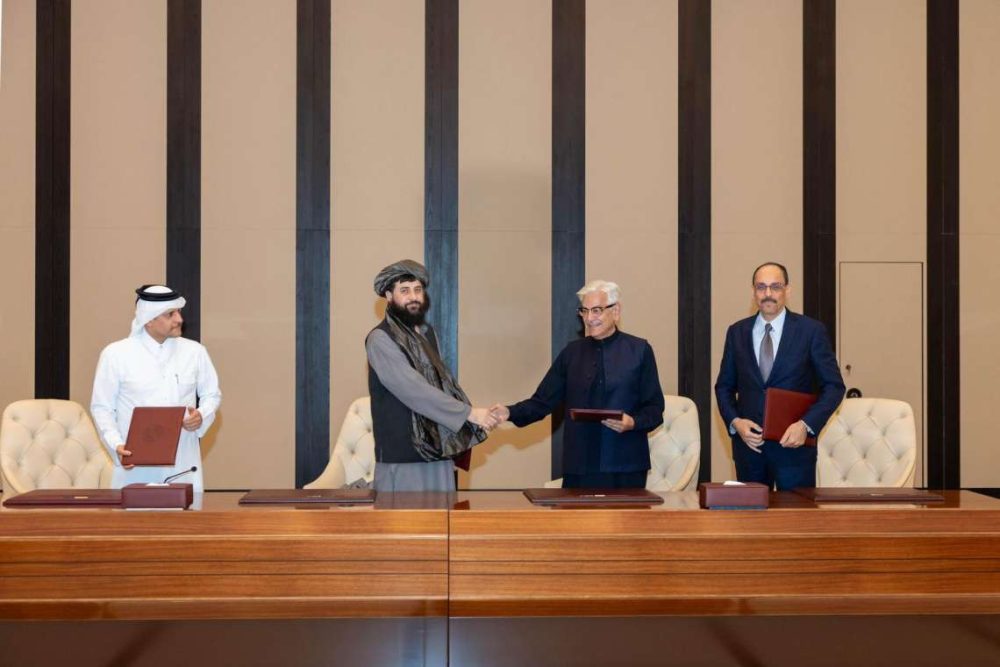PM Modi’s Japan visit puts semiconductors centre stage, with India and Japan pledging to build resilient supply chains and expand cooperation in advanced technology and innovation.
Prime Minister Narendra Modi on Saturday underlined the importance of semiconductors as a “strategic domain” in India–Japan cooperation, highlighting the sector as central to the two nations’ economic and technological partnership.
On the second day of his official visit to Japan, Modi travelled with Japanese Prime Minister Shigeru Ishiba aboard the iconic Shinkansen bullet train to Sendai in Miyagi Prefecture. The two leaders visited Tokyo Electron Miyagi Ltd (TEL Miyagi), one of Japan’s leading semiconductor firms, to get a firsthand look at its manufacturing facilities and training programmes.
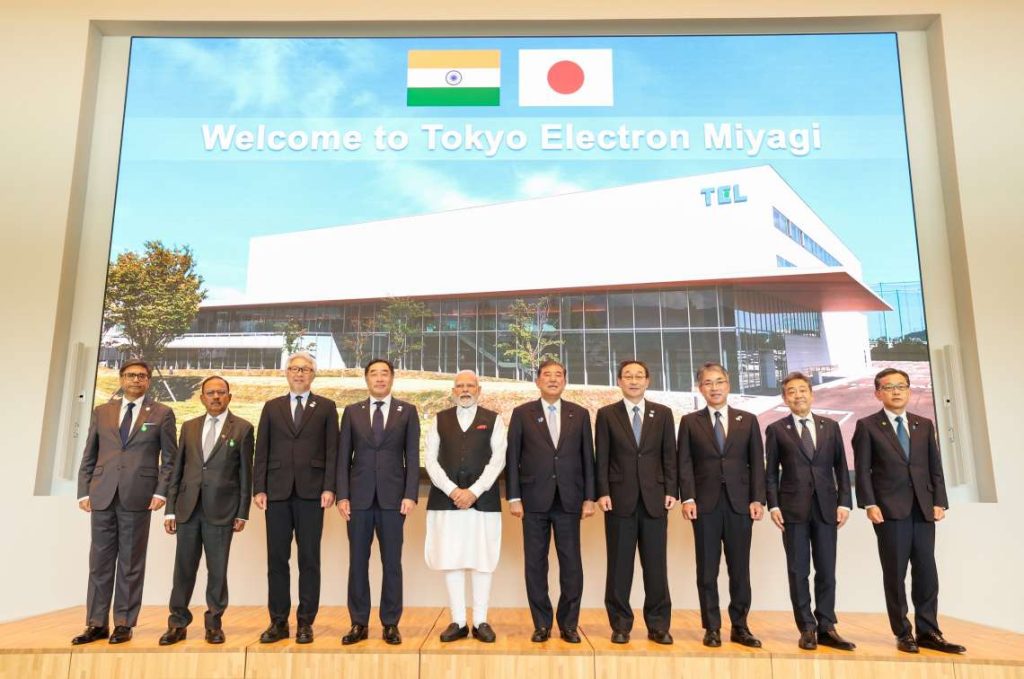
Sharing details of the visit, Modi posted on social media that he had inspected TEL Miyagi’s training room and Production Innovation Lab while engaging with the company’s top executives. “Semiconductors are an important field in India–Japan cooperation. In recent years, India has made significant progress, with many young people entering this domain. I hope to continue this momentum in the future as well,” he said.
A statement from the Prime Minister’s Office noted that Modi expressed appreciation to Ishiba for joining him in the visit and reaffirmed India’s readiness to work closely with Japan on semiconductor development. He was also briefed on TEL’s advanced manufacturing capabilities, its role in the global semiconductor value chain, and the company’s existing and upcoming collaborations with India.
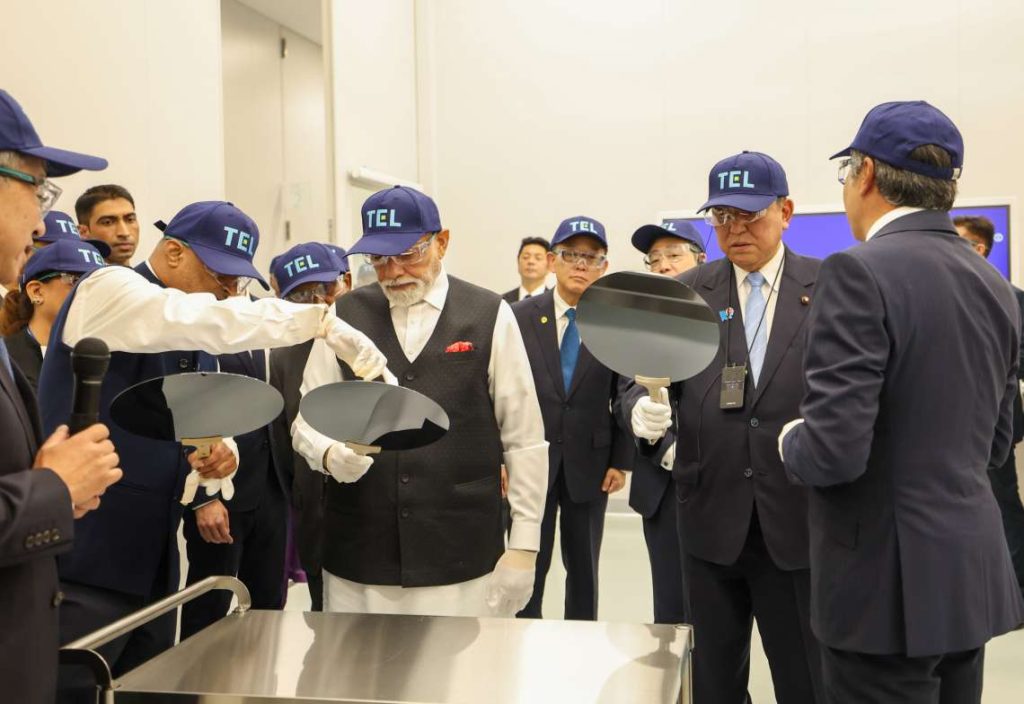
The visit, the PMO said, gave both leaders “a practical understanding of opportunities to deepen cooperation in the areas of supply chains, fabrication, and testing.” It also emphasised the complementarity between India’s emerging semiconductor ecosystem and Japan’s strengths in equipment and technology.
India and Japan have already signed a Memorandum of Cooperation on the Semiconductor Supply Chain Partnership and are working together under the India–Japan Industrial Competitiveness Partnership and the Economic Security Dialogue. Saturday’s joint visit reinforced their shared goal of building “robust, resilient, and trusted” semiconductor supply chains in the Indo-Pacific.
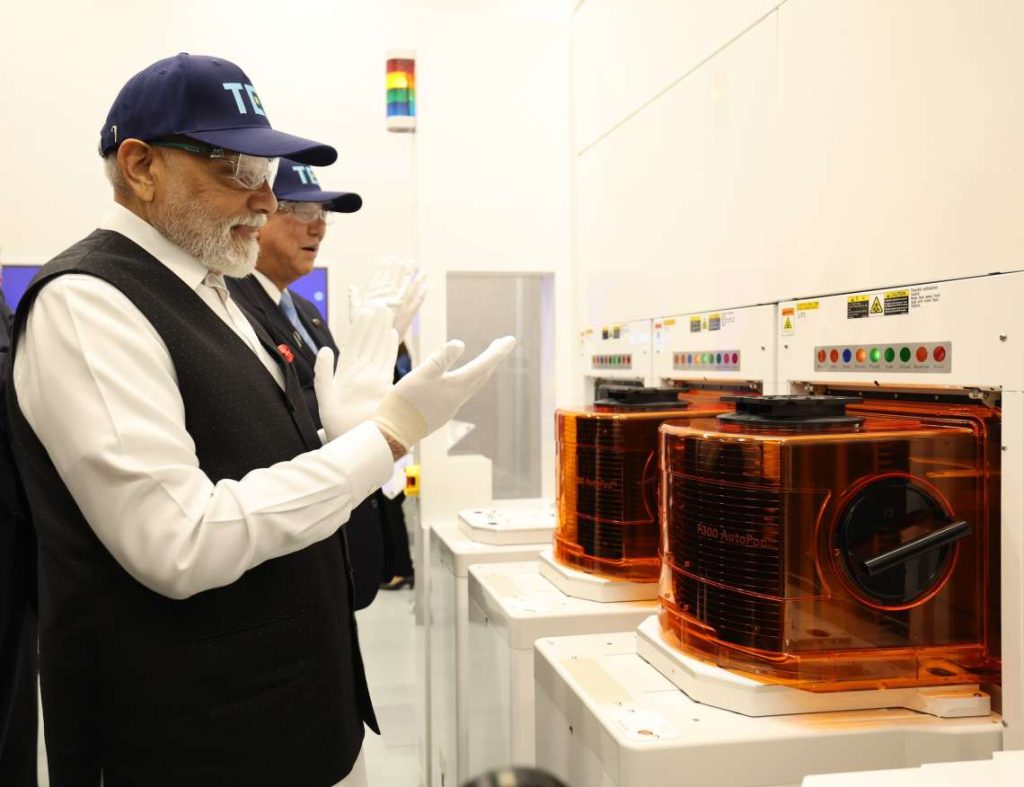
In Tokyo, Modi also met with governors of 16 Japanese prefectures to explore inter-regional partnerships in trade, startups, innovation, and emerging technologies.
The trip marks Modi’s eighth visit to Japan and follows his last visit in May 2023. His two-day stay, at the invitation of Prime Minister Ishiba, reflects New Delhi and Tokyo’s growing alignment in economic and strategic domains, with semiconductors now firmly at the heart of their cooperation.


